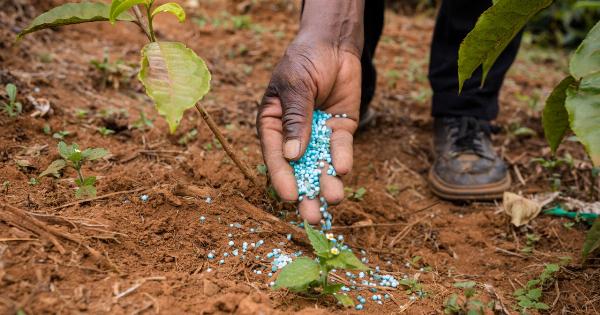Testosterone is a vital hormone that plays a crucial role in male reproductive health and overall well-being. It is responsible for maintaining muscle mass, bone density, energy levels, and mood in men.
Additionally, testosterone is crucial for fertility and plays a significant role in sperm production. However, certain foods can adversely affect testosterone levels and fertility in men. In this article, we will discuss foods that men should avoid to maintain optimal testosterone levels and promote fertility.
1. Soy-based Products
Soy-based products, including tofu, soy milk, and soybean oil, contain high levels of phytoestrogens. Phytoestrogens are plant compounds that mimic estrogen in the body.
Consuming excessive amounts of phytoestrogens can lead to reduced testosterone levels and abnormal sperm production.
2. Alcohol
Excessive alcohol consumption can have several negative effects on testosterone levels and fertility. Alcohol impairs the liver’s ability to metabolize estrogen, resulting in an increase in estrogen levels.
This imbalance between estrogen and testosterone can reduce testosterone levels and negatively impact sperm quality.
3. Processed Foods
Foods that are highly processed and contain high levels of trans fats, refined sugars, and additives can contribute to obesity and insulin resistance.
Obesity and insulin resistance are closely linked to lower testosterone levels and fertility issues in men.
4. High-Sugar Foods and Beverages
Consuming foods and beverages high in sugar, such as soda, energy drinks, and sweet treats, can lead to insulin resistance and inflammation. These conditions can decrease testosterone levels and affect sperm health and motility.
5. Foods High in Trans Fats
Foods that are high in trans fats, such as deep-fried foods, packaged snacks, and commercially baked goods, can contribute to inflammation and negatively impact hormone production.
Trans fats have been associated with lower testosterone levels and reduced sperm count.
6. Flaxseeds
While flaxseeds are generally considered healthy, their high content of lignans can have estrogenic effects in the body. Consuming excessive amounts of flaxseeds can lead to a decrease in testosterone levels and fertility issues.
7. Mint
Mint, including peppermint and spearmint, contains compounds that have anti-androgenic effects. These compounds can inhibit testosterone production and decrease sperm motility, potentially affecting fertility.
8. Licorice
Licorice root contains a compound called glycyrrhizin, which can inhibit testosterone production and decrease sperm quality.
Regular consumption of licorice or products containing licorice extract should be avoided to maintain healthy testosterone levels.
9. Red Meat
While red meat is a good source of protein and essential nutrients, excessive consumption, especially processed red meats, can lead to higher estrogen levels. This hormonal imbalance can result in reduced testosterone levels and fertility issues.
10. Artificial Sweeteners
Artificial sweeteners, such as aspartame and sucralose, can disrupt hormone regulation and negatively impact testosterone levels. It is best to limit or avoid foods and beverages containing artificial sweeteners to maintain optimal testosterone levels.
Conclusion
Maintaining healthy testosterone levels and fertility is crucial for men’s overall well-being. Avoiding certain foods that reduce testosterone levels and affect fertility can help support hormonal balance and reproductive health.
By reducing or eliminating soy-based products, alcohol, processed foods, high-sugar foods and beverages, foods high in trans fats, flaxseeds, mint, licorice, red meat, and artificial sweeteners from the diet, men can optimize their testosterone levels and promote fertility.





























